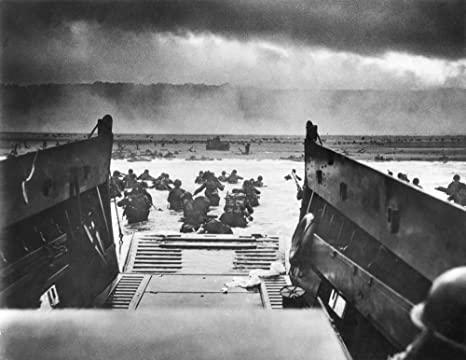
Major military operations under Operation Overlord air war - naval war Neptune - Caen - Carentan - Cherbourg - Saint-Lô - Cobra - Brittany - Liège - Falaise - Paris. The Allied Invasion of Normandy or Operation Overlord from June 6, 1944 (English for overlord, liege lord) as a code name for the landing of the Western Allies of the anti-Hitler coalition that took place in northern France in 1944 during World War II led to the establishment of the second front against the German Reich in western Europe. The landing, mainly by ships and massive air support, took place essentially on the French coast of the English Channel east of Cherbourg in Normandy. The first day is also called D-Day (possibly After the word débarquement) or the longest day. The successful landing provided the Soviet Union with the relief the Red Army had long desired in its fight against the Wehrmacht. The German leadership had built a system of defenses on the Atlantic coast known as the Atlantic Wall and, partly because of the Allied deception operation Fortitude, expected an Allied invasion farther east at the Pas-de-Calais, where the sea route across the channel was much shorter. "Using 6400 ships, 326,000 men, 104,000 tons of materiel, and 54,000 vehicles landed between the mouth of the Orne River at Caen and Cherbourg by June 12 (850,000 men by June 30). After securing a bridgehead, the first part of the invasion plans (Operation Neptune) had succeeded with the breakthrough at Avranches in late July 1944. On August 25, 1944, Paris was liberated. Troops from the United States, Great Britain, Canada, Poland, France, New Zealand and other countries took part in the fighting. The largest landing fleet of the war was assembled for the operation, and a large number of aircraft were made available (see also Naval Warfare During Operation Overlord and Air Warfare During Operation Overlord). To commemorate the fallen and the events, former combatants established several cemeteries, memorials, and museums in the former area of operations After the war. Operation Overlord occupies a central role, particularly in American and British World War II commemorative culture, and has been the subject of numerous nonfiction books, novels, and plays, as well as documentaries and feature films.
We can never be grateful enough for the missions and sacrifices of Allied forces throughout the war.
D-Day The Beaches